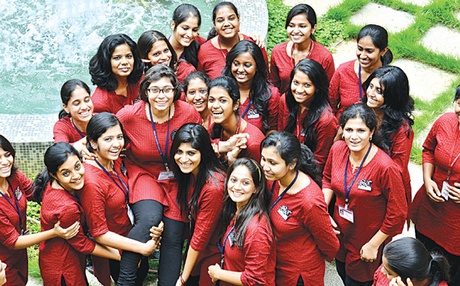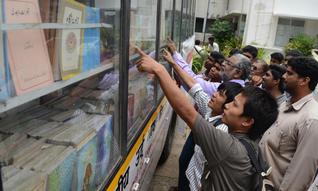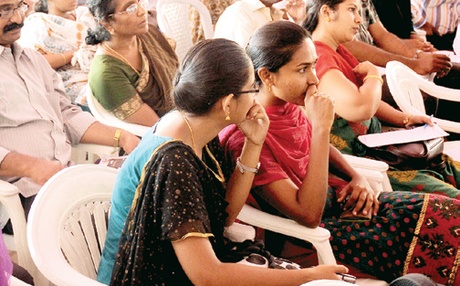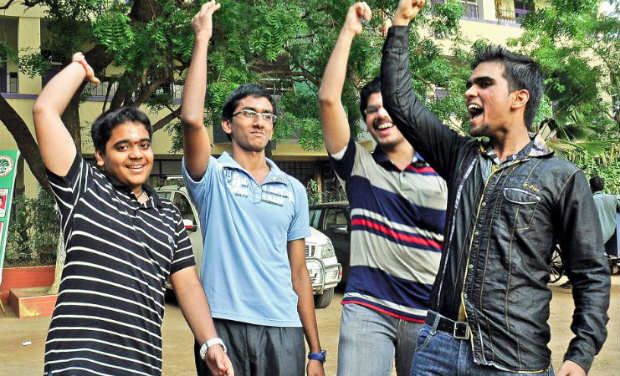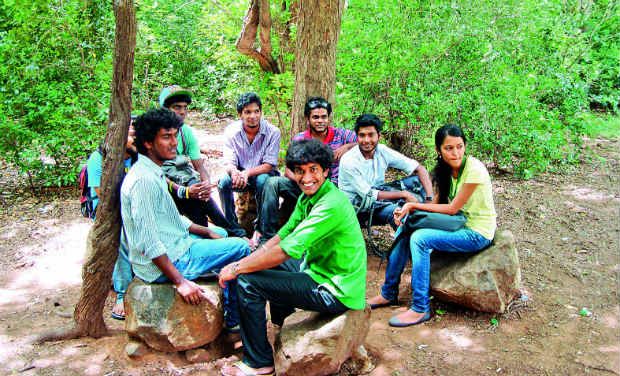
Chennai:
MCCians from both hemispheres of the globe crossed several seas and lands to be present at the global alumni meet 2013 in Tambaram on Saturday-Sunday. A Sri Lankan settled in Australia, another in Canada and two Indians in the US did not mind sinking their money in the trip meant solely to be part of the global re-union.
“In those days, we had only one university and only sons of influential people got seats. So, I followed my brother and came to MCC to study,” said M. Karunananthan (74), who hails from Jaffna in Sri Lanka. After graduating with B.Sc. in Botany in 1962 at MCC, Karunananthan went to Brunei and worked as a principal in a school for 30 years.
“Politically things were not good in Sri Lanka and so I chose to settle down in Australia,” said Karunananthan who spent about Rs 1.25 lakh to attend this event. “I used my 30 years’ savings to return to my alma mater. I came because it is a global meet and I wanted to touch base with my friends and classmates,” he said, adding that he and his friends would continue the meeting with a separate party on Sunday night.
Ambi Harsha (66) couldn’t wait for the cricket match to start on Sunday, as the former MCC cricket captain made it to the alumni meet all the way from Santa Barbara, USA.
While the alumni cricketer who passed out with M.Phil in History in 1971 was keen to get back to the field, he was also a little upset because a few of his old friends had passed away. When asked about the absence of some big names like PepsiCo CEO Indra Nooyi, Harsha said all of them were equal till they left college.
“We don’t think about big shots. They made it big only after leaving this campus and so we are happy to meet the old bunch who made all efforts to join the re-union,” he added. For Saravanan Kannan (40) it was MCC that helped him develop in life.
As a sports convener and later college union secretary general, the 1995 M.Sc. Physics student dedicates the rise in his career at IBM Software in New Jersey to the planning and implementation that he learnt from organising sports events in his college.
Canadian T. Siva Yogathy, who graduated with B.Com. in 1973, said the re-union was something unique. “We met five years ago to celebrate our B.Com. class re-union. But this global re-union where all batches across departments were invited to one place is simply mind boggling,” he added.
A college visit that evokes nostalgia
Chennai: Where are the classrooms? For a newcomer, Madras Christian College (MCC) would be ideal ground for a treasure hunt, as the 365 acre scrub forest hides most of the buildings.
How much the students in those well concealed classrooms value their green cover became apparent when the cutting down of a few of those very trees occasioned a strike.
Students go on strike for a variety of reasons, including bad hostel food or water shortage, but here they were up in arms against the management for shearing a few of the trees in their midst.
“To reinstate the trees that were to be cut, we planted many new saplings. But, fortunately, the college decided against the planned felling of trees and it made us feel doubly happy,” said K. Chendilnathan, a B.Sc. Zoology alumnus of 1992.
The college has managed to maintain till date the beauty of its natural surroundings, be it the lake or the scrub forest, over a span of the last 76 years. Further, the college has also made sure that the students’ natural talent and interests were not diluted.
“There were no rigid divisions between departments. We used to discuss freely with all our teachers across disciplines,” recalled Dr C. Selvaraj, who passed out with an M.A. in Economics in 1973.
The main grooming ground for the boys were the three ‘Halls’ where the hostel students resided. Day scholars were also attached to one of the Halls. All sports and cultural events were conducted between the three Halls.
An alumnus pointed out that the Halls had their own nicknames, the students of Heber Hall being called ‘barbarians’, Selaiyur Hall students were known as ‘kataans’, and Thomas Hall men were reduced to ‘thaiyer vadais’.
“We used to go for night walks and also ride through the entire circumference of the campus, which extends to 6 km, as part of cross-country events,” recollected Raj Mohanan, who passed out with an M.A. in History in 1997.
One place that always attracted young boys, and now girls, inside the campus were the philosophy ‘thrones’. “We enjoy sitting on these stones under the shade of the trees and discuss things,” said R. Nikitha, a first-year, B.Com student.
source: http://www.deccanchronicle.com / Deccan Chronicle / Home> News> Current Affairs / by DC / S. Sujatha / July 29th, 2013

